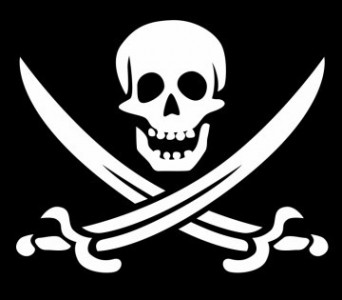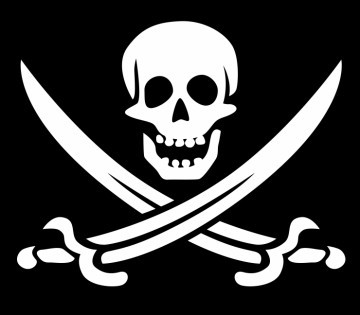Ban Ki Moon's 7 Options for Bringing Pirates to Justice
 (BRUSSELS2) At the UN Security Council, on August 25, it will normally be a question of piracy and in particular the bringing to justice of suspects arrested by international forces in the Indian Ocean (1). Even if this subject may take a back seat with the deteriorating situation around Mogadishu, the plenipotentiaries will certainly have carefully read the report (2) that Ban Ki Moon sent them. Details...
(BRUSSELS2) At the UN Security Council, on August 25, it will normally be a question of piracy and in particular the bringing to justice of suspects arrested by international forces in the Indian Ocean (1). Even if this subject may take a back seat with the deteriorating situation around Mogadishu, the plenipotentiaries will certainly have carefully read the report (2) that Ban Ki Moon sent them. Details...
Seven options studied
The UN Secretary General presents seven options: from the mechanism (already started) to support the existing courts in Kenya or the Seychelles (Option 1) to the international court, on the basis of an agreement between a State in the region and the UN (Option 6) or created by a Security Council resolution under Chapter VII of the UN Charter (Option 7) through the establishment of a Somali tribunal sitting in the territory of a State third party in the region, with or without the participation of the UN (option 2), the special chamber under the jurisdiction of a State in the region, without the participation of the UN (option 3), or with the participation of the UN (Option 4), the creation of a regional court on the basis of a multilateral agreement between the States of the region, with the participation of the UN (Option 5).
Each of its solutions is analyzed by weighing the advantages and disadvantages, both in terms of political feasibility, legal difficulties, necessary financial means (a main condition today) and the time required. Clearly the option that Ban Ki Moon prefers is the consolidation of the existing jurisdictions (option 1), or even the creation of a special chamber (option 3). The regional court or international court solutions require a period of implementation (from 2 to 10 years) and will be too expensive, especially in the midst of a period of budgetary austerity. For the record, the annual budget of existing tribunals and other international judicial mechanisms has reached a maximum located “between $36,1 million (Special Court for Sierra Leone) and approximately $376,2 million (Criminal Court for the former Yugoslavia for a biennium)”.
Realistic Options: Prosecution in Indian Ocean Rim States
Option 1 (support for existing structures) is the most realistic, in the short term... And the least expensive. UNODC has already started this program in Kenya and the Seychelles. Three other countries are likely to host pirates: Mauritius, Maldives and Tanzania. Mauritius being the most advanced (3). Exploratory missions are still in progress. It is in Kenya, the oldest program, that the commitment is the heaviest, with in particular the construction of a special court within the walls of Shimo La Tewa prison, in Mombasa (inaugurated on June 24 ). A budget of 2,3 million dollars, for a period of 18 months, covers about thirty lawsuits. The program in the Seychelles benefits from funding of 1,1 million dollars, for a period of 18 months, relating to the prosecution of some forty suspects. In addition, an orientation manual on transfers drawn up, in collaboration with Kenya and the Seychelles, has made it possible to improve the quality of evidence collected and transferred by States whose vessels carry out patrols, and should help to ensure the smooth running of legal proceedings ". According to UNODC estimates, if Kenya, Seychelles, Tanzania and Mauritius join efforts in this area, they could prosecute up to 600 to 800 suspects per year, at cruising speed.
In Somalia (option 2), although the United Nations has a program for training judicial and police personnel, strengthening prosecution capacity and reforming the legal system (activities financed by the International special allocation (1,2 million dollars for UNODC projects), it seems too early to envisage that legal proceedings can be established on a regular basis. " Although in principle such an option might be among the most economical, in practice the assistance that the United Nations would have to provide would be considerable. The costs would therefore probably be much higher than those of the special chamber, and the time required to set up the tribunal much longer. (...) Even if such an option would have the advantage of allowing Somalia to participate directly in the resolution of the problem posed by the repression of acts of piracy, it is perhaps not possible for the moment. » explains the Secretary General. Need it be said that this option had not been expressly envisaged in resolution 1918 (2) but had been raised by certain States, in particular Portugal.
On the other hand, in terms of incarceration, the Somali solution seems not only more likely but necessary in view of the various agreements made with the states bordering the Indian Ocean.
The solution of the special chamber (option 3) is the one which, in the medium term, seems the most feasible and the most sustainable (financially). This is to encourage the creation by a State or several States in the region of a court or a special chamber within its national judicial structure to prosecute the perpetrators of acts of piracy and armed robbery committed at sea off the coast of Somalia. The advantage is to be able to rely on the judicial, police and penitentiary structure of a State and to have proximity (cultural for prisoners, etc.). The disadvantage is the risk of creating, in the country itself, a two-speed justice (NB: but does it not already exist?) or of diverting judicial and prison human resources which are probably not legion . This solution can be supplemented by the participation of international personnel (option 2), but “ would help to strengthen the capacities of this jurisdiction” and would even allow - if the judicial staff is chosen from the States of the region - " better build regional capacity and contribute to long-term efforts to bring peace and stability to Somalia. » But this adds legal complexity (local law permitting) and is a bit more expensive ($14 million annually for East Timor's special chambers).
On the other solutions, it is clear that they are envisaged but require a financial and human investment (preparation time) which is not in line with the desire to achieve a short-term result for the States.
The question of imprisonment: in Somalia?
This is a crucial question. Just as much if not more than the legal question. The idea is therefore to be able to judge the pirates in one place but, in most cases, to incarcerate them in other countries, the country of origin. Given the extension of piracy, it is not a question of judging a few dozen people. The Secretary-General thus believes that “ incarceration needs could reach 2000 people by the end of 2011 ". A figure much higher than that published by all existing courts. Because we must take into account: the suspects in pre-trial detention and the length of the sentences, quite long, of those who have been convicted (8 to 20 years in Kenya). As one expert from the Contact Group put it, “ the long-term burden imposed by prosecution lies not in the prosecution itself but in the resulting imprisonment. »
And most international experts like those in the region believe that convicts should be incarcerated in their country of origin, for different considerations “ cultural, linguistic and family (it should be added: political and security). To this is added the exiguity of certain territories. Thus the 31 suspects placed in pre-trial detention, awaiting trial, in the Seychelles already represent nearly " than 10% of the prison population ! The weight is not identical, of course, in Kenya, where 123 inmates represent 0,2% of the prison population”.
UNDOC has already started renovating prisons in Somaliland and Puntland, two largely autonomous regions of Somalia where violence is less intense than in the central part.
Somalia (specifically the Puntland region), has “ indicated that it was ready to accept Somalis sentenced to prison in other jurisdictions ". But, underlines the general secretary, assistance needed to bring detention centers up to international standards ". In Somaliland, UNDP and UNODC are completing the construction of a new prison in Somaliland. In Puntland, UNDP will complete the construction of a new prison by the end of 2010 and UNODC is rehabilitating a detention centre. A staff training program is also being developed to “improve detention conditions”.
It will then remain to settle the question of the repatriation not only of the condemned but especially of the acquitted. " The problem arises whether charges are dropped for lack of evidence, for example, or the accused is acquitted.. Most welcoming States want to have, now, “ the assurance that these people can be repatriated, generally to Somalia, and that the expenses related to this repatriation are not charged to them ».
Also read:
(Nicolas Gros-Verheyde)

Comments closed.